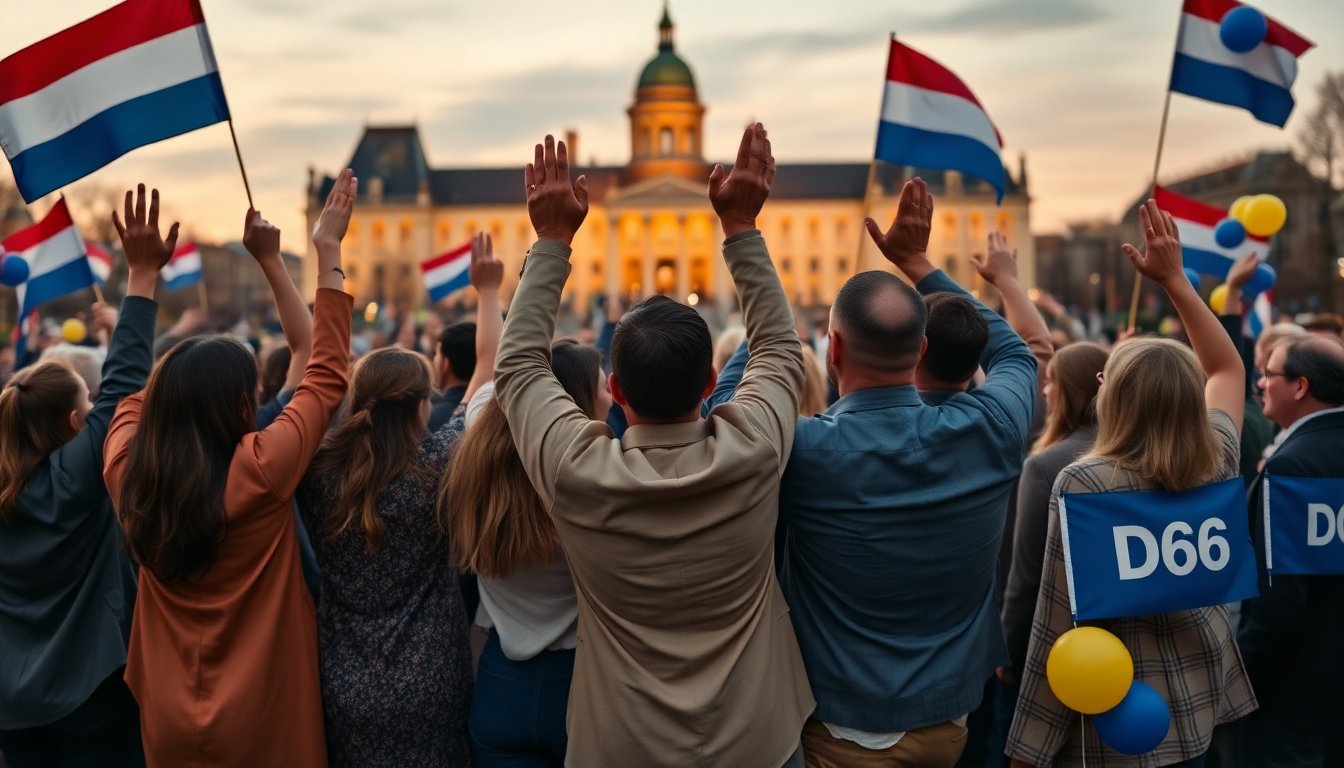Table of Contents
The elections in the Netherlands have taken an unexpected turn, demonstrating how a combination of optimism and unity can lead to significant political victories. Rob Jetten, the leader of the centrist D66 party, achieved victory despite previously losing in a game show, highlighting the unpredictable nature of politics. This outcome has reshaped the political landscape and positioned Jetten as a potential prime minister.
Victory against the odds
The Dutch elections concluded with a dramatic finish, as the final results depended on postal votes from citizens living abroad. Jetten’s D66 party secured a narrow win, surpassing Geert Wilders’ far-right Party for Freedom (PVV) by just 28,000 votes. Both parties obtained 26 seats in parliament, reflecting a competitive and fragmented political environment.
A historic achievement
Rob Jetten, at 38 years old, is poised to become the youngest and first openly gay prime minister of the Netherlands. Jetten expressed pride and a sense of responsibility, describing the recent electoral outcome as a historic achievement for the nation. The D66 party’s nearly tripled seat count underscores their effective campaigning, which focused on a positive vision for the future, standing in stark contrast to the narrative put forth by the far-right.
The rise and fall of the far-right
Two years earlier, the PVV party experienced a notable surge, surprising many and indicating a shift towards the far-right in Dutch politics. However, after a turbulent period marked by internal conflicts within a four-party coalition, Geert Wilders’ party suffered an 11-seat loss in the recent elections. This decline highlights growing voter dissatisfaction with the party’s inability to deliver on its stringent immigration policies.
Challenges faced by the far-right
In the aftermath of the election, Geert Wilders has made unsubstantiated claims regarding voting irregularities. These allegations have been widely dismissed by election officials and local municipalities. The Dutch Electoral Council has confirmed the integrity of the electoral process, highlighting the strength of their procedures. This situation emphasizes the necessity of preserving trust in democratic institutions, particularly in light of populist rhetoric.
Coalition building ahead
With the D66 party now holding the largest share of seats, Rob Jetten faces the complex task of forming a coalition government. The parliament’s fragmented landscape, which includes representation from 15 parties, suggests that negotiations could extend over several weeks or even months. Jetten aims to create a broad coalition that brings together parties across the political spectrum, seeking stability and effective governance.
Potential coalition dynamics
Jetten’s preferred coalition would bring together the center-right CDA, the right-wing VVD, and the left-leaning Green/Labour group, creating a comfortable majority. However, VVD leader Dilan Yesilgoz favors a right-wing coalition, complicating Jetten’s strategy. Skilled diplomacy will be essential as parties address their differing priorities and ideologies.
The evolving political landscape in the Netherlands makes the outcome of these coalition talks critical not only for Jetten’s future but also for the stability of the Dutch government. The D66 party’s recent victory underscores that, even in difficult times, a message of hope and unity can resonate with voters, potentially ushering in a new chapter in Dutch politics.


